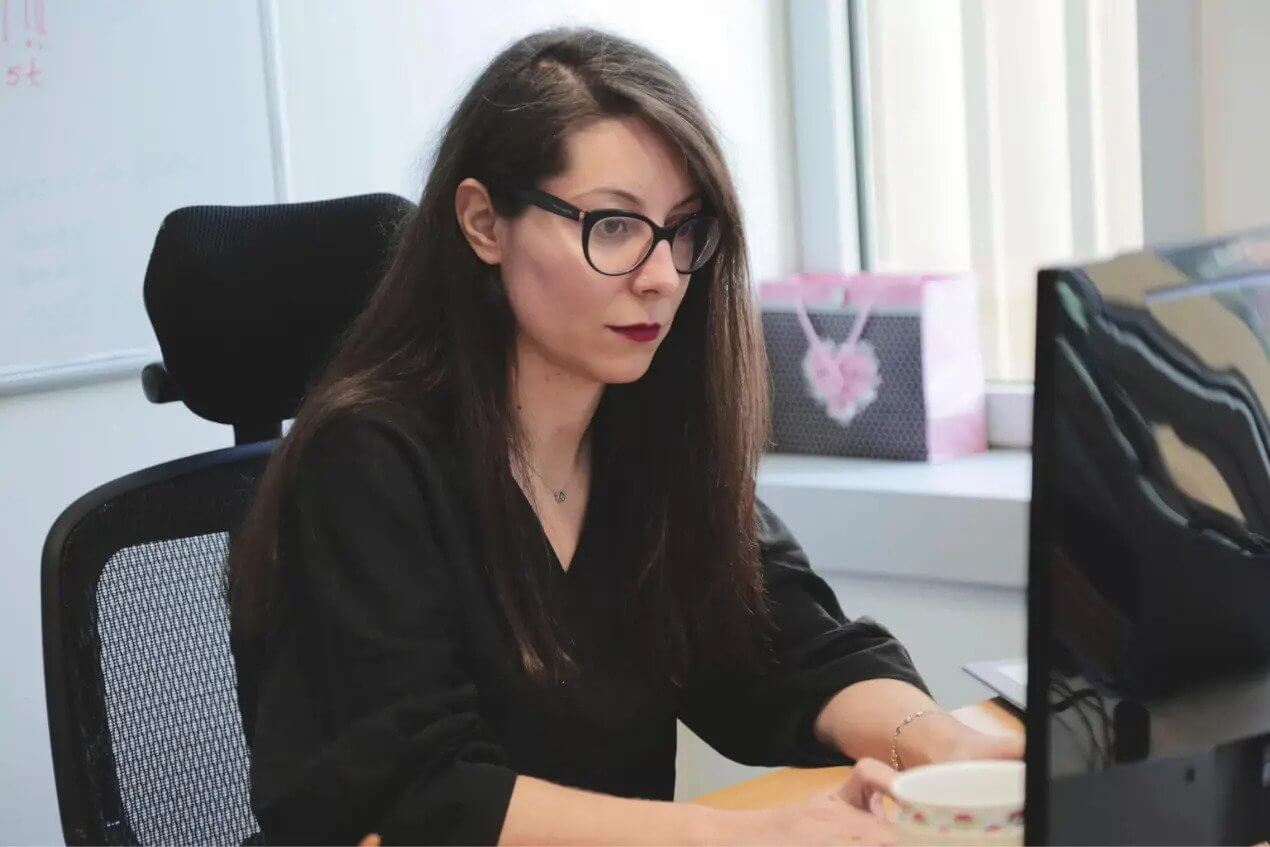One of Vulog’s women in tech, Product Leader Olia Michou is in the running for ‘Trophees Women in Tech Sud’, an award that aims to highlight and bring to light the women that are working in tech in the South of France.
NICE. June 18, 2019 We’ve put together some of the highlights of her answers to their questions. The finalists will be announced on July 15th. Stay tuned.
Describe the main stages of your career in technology
Three major moments can define my career. Firstly, as an undergraduate student at the Aristotle University of Thessaloniki, I worked at the university leading software engineering lab “Department of Informatics and Communication, Technological Educational Institute of Serres” where I mentored younger students including a number of young women who would go on to pursue careers in technology. A second defining moment in my career was working at Amadeus where I became a SCRUM master and head of several steering committees. This is where I was able to first grow a deep appreciation for the innovation and technology-driven community in Sophia-Antipolis as well as the Côte d’Azur region at large. A third major milestone was joining Vulog where I am currently a Team Product Leader.
One of the most important moments in my career was getting an offer at Vulog. Management gave me 100% trust and autonomy in my ability to make important decisions specifically regarding developing product roadmap strategies while meeting the needs and expectations of different players including clients, investors, internal engineers, etc.
What are your main missions at Vulog and what are some of the challenges of your role?
My main responsibilities are to oversee how our technology platform, AiMA, is deployed across our client base. I am the “front-woman” for our clients as we construct a roadmap for their individual needs. In tandem, I coordinate internally with our in-house engineers to ensure the feasibility and quality of all of the specific features that we integrate into our client’s roadmaps. In total, I manage a team of 5 engineers and 18 client projects.
One of the greatest challenges in a role like mine is balancing science and business. Businessmen have trouble speaking the “science language” and engineers have difficulty understanding “business language”. Having studied both science and business, I am able to surmount this challenge just like a translator might do when translating between two foreign languages. This allows for smoother communication and more efficient project management. Instead of feeling ordered around, my team of engineers has acquired a certain level of trust in knowing that I understand what’s going on from a scientific perspective and will advocate accordingly when I’m in meetings with business clients. On the other hand, my clients trust that I am making the right decisions that are in their interests.
What is your view on the presence of women in Sciences & Tech?
Women are drastically underrepresented in the science and technology fields, and yet, their contribution to the scientific community is crucial for many reasons. Firstly and from a purely knowledge-based standpoint, by not tapping into half of the human population, the scientific community is not reaching its full potential.
Secondly, women can have a great advantage over men in the scientific community thanks to their holistic and humanitarian approach as well as their natural communication skills. Better communication leads to better results when managing projects and resolving problems.
Finally, women are great multi-taskers. Managers must oversee projects while communicating with local and international teams who have different operational needs, different professional backgrounds, and even timetables. In the scientific and technology fields, multi-tasking – especially as a manager – is essential.
What actions do you take or have taken to promote the feminization of the scientific and technical professions and what suggestions would you have to improve its visibility?
In order to “feminize” the scientific community, people – both women & men – need to be more proactive about vocalizing women’s indispensable contribution to science. Visibility here is key: the more women are systematically identified as valuable assets to the scientific community, the more psychological barriers of both sexes break down. Contests like this one, are a great way of shedding light on major female players that are actively contributing to the scientific community.
Community associations, municipalities, and companies play a big role, too. By publishing reports and highlighting achievements across the media, women in science and technology become omnipresent, shifting from “local phenomenon” to “status quo”. I myself, am working with my company’s marketing team to identify influential women in mobility as part of a special report that Vulog is publishing this June and which will be distributed worldwide.
In your opinion, what are the means to implement to increase the number of women in the fields of science and Tech?
Early on in a child’s development, society tends to veer boys towards science or technology and girls towards humanities and the arts. This is important because research shows that if you encourage children in certain areas of play, they are more likely to develop an appreciation in that area. Therefore, it is not surprising that there are fewer women in science. Less exposure means less interest and this means fewer opportunities. Girls also need to be taught early on that they can play several roles as an adult: a mother and a scientist and that these roles are not mutually exclusive.
The good news, however, is that this reality can be tweaked in women’s favor. By organizing more science-oriented activities for girls from an early age and being exposed to women who are both mothers and scientists, they can build curiosity and a strong desire to integrate the field later on. Schools and local communities should be especially proactive in this respect by organizing workshops and open houses to make science more accessible and “normal” for girls.
As these girls and young women enter the workforce, companies can play an important role in retaining and increasing the number of women in tech from an organizational and structural standpoint. Studies have shown that 70% of women who dropped out of the workplace said that they’d still be working if they had flexibility. This is largely due to the fact that women feel immense societal pressure to fulfill the role of primary caregiver in the home. By implementing more flexible work policies like “nomadism” or “travail à distance”, women can feel more empowered to balance the role of caregiver and professional. As a mother myself, I can see firsthand how the flexible work culture at Vulog has not only helped, but actually optimized my work performance.
What advice would you give to a young woman new to a scientific and technical career?
Always believe in yourself. Never doubt your capabilities. Listen to everyone around you and learn as much as you can from everyone you meet. Use your specialties not as a weapon, but as a tool to better accomplish your goals and to better society.
Vulog is the world’s leading tech mobility provider: we are committed to building a greener future, one city at a time.




